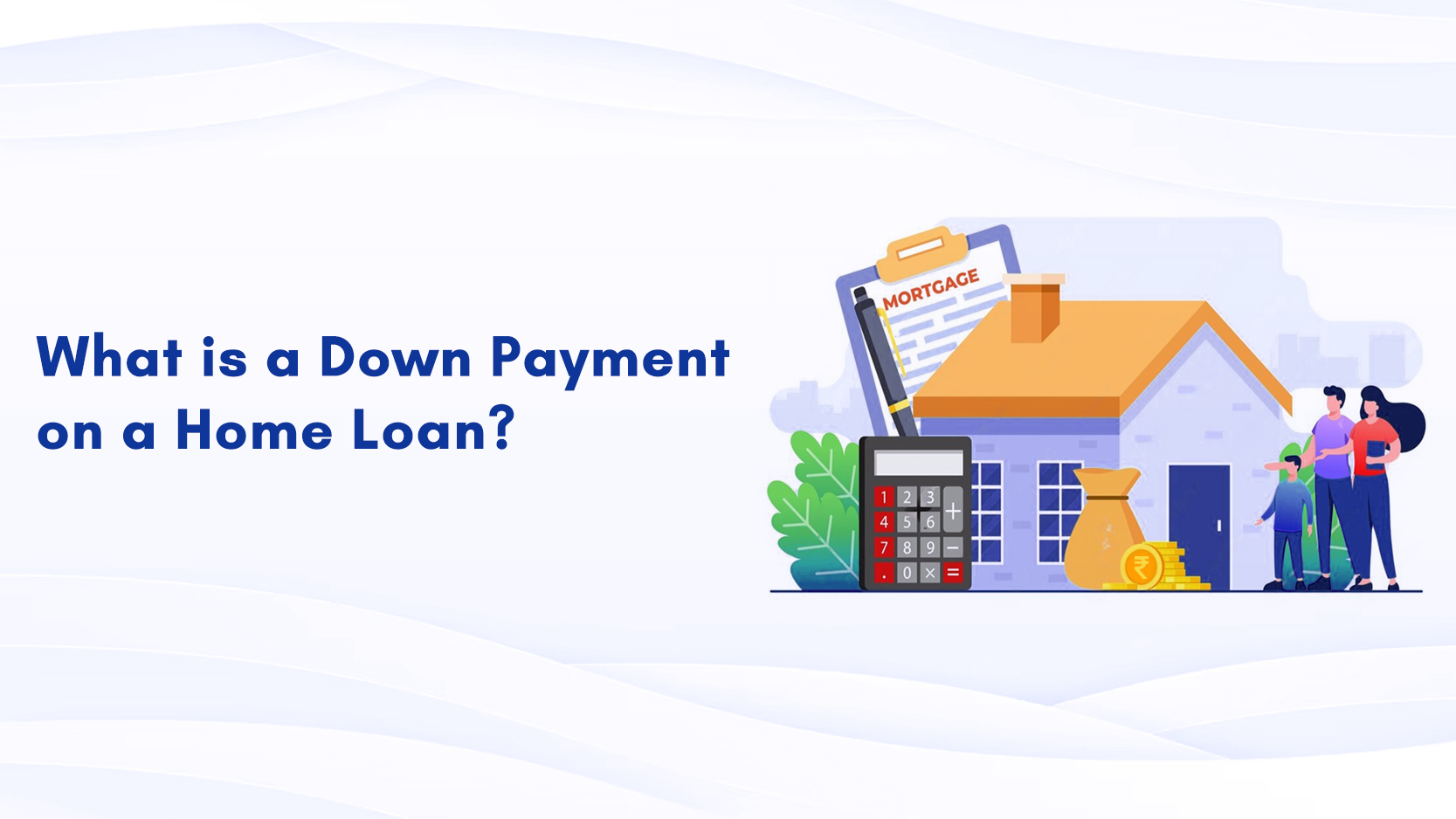Special Offers




Special Offers




31-Aug-2024 | Home Loan

Buying a home is a dream for many. It’s a place where we envision our future, create memories, and find comfort. But before you can unlock the door to your new home, there are some financial steps you need to take. One of the most important is making a down payment on your home loan. Let's dive into what a down payment is and why it matters.
A down payment is the initial amount of money you pay upfront when you purchase a home. This amount is a percentage of the total home price and is paid out of your own pocket. The rest of the home’s price is covered by the home loan. For example, if you're buying a house worth ₹200,000 and you make a 20% down payment, you'll pay ₹40,000 upfront, and the remaining ₹160,000 will be financed through your home loan.
Paying a higher down payment means you borrow less money. Imagine borrowing
₹14,00,000 instead of ₹18,00,000. The smaller the loan, the easier it is to manage and pay off. Lower loans also mean lower monthly payments.
Interest is calculated on the loan amount. A higher down payment reduces the principal amount of your loan. For example, if you make a larger down payment, your principal reduces, leading to less interest paid over the life of the loan. This can save you a lot of money!
Lenders feel more secure when you make a higher down payment because it reduces their risk. As a result, you might get better interest rates and terms. This means easy home loans with favourable conditions for you.
With a smaller loan amount, your Equated Monthly Installments (EMIs) will be lower. Use a home loan EMI calculator to see how different down payment amounts can affect your monthly payments. Lower EMIs mean you have more disposable income each month for other expenses or savings.
A higher down payment means you own a bigger portion of your home right from the start. This increased equity can be beneficial if you ever need to sell the home or refinance your loan, as you'll owe less relative to the property's value.
Most lenders require at least 20-30% of the home’s purchase price as a down payment. So, if you're looking at a ₹20,00,000 home, you should aim to pay ₹4,00,000 - ₹6,00,000 upfront.
While 20% is the minimum, paying more can be beneficial. Aiming for 25% or even 30% can give you better loan terms and save you money in the long run. Use an online home loan EMI calculator to explore how different down payment amounts affect your loan.
Your down payment should align with your financial situation. Consider your savings, income, and other financial commitments. It’s essential to strike a balance between making a substantial down payment and keeping enough funds for other needs.
Set a clear savings goal based on the down payment amount you need. Break this goal into smaller, manageable monthly targets. For instance, if you need to save ₹4,00,000 in two years, aim to save about ₹16,667 per month.
Analyze your monthly expenses and identify areas where you can cut back. Simple changes like dining out less, cancelling unused subscriptions, and opting for cheaper alternatives can make a big difference.
Consider taking on a part-time job, freelancing, or starting a side business to boost your income. This additional income can be directed entirely towards your down payment fund.
Set up an automatic transfer to your savings account each month. This ensures you consistently save money without the temptation to spend it.
Consider investing your savings in low-risk instruments that offer better returns than a regular savings account. Options like fixed deposits, mutual funds, or savings schemes can help grow your money faster.
Any unexpected bonuses, tax refunds, or monetary gifts should be added to your down payment fund. These windfalls can significantly accelerate your savings progress.
A down payment is a crucial step in your home-buying journey. It reduces the loan amount, lowers your interest costs, and results in lower monthly EMIs. By making a higher down payment, you gain better loan terms and increased home equity.
Figuring out how much to put down involves considering your financial situation, the lender’s requirements, and the benefits of paying more upfront. Aiming for more than the minimum can be advantageous.
Saving for a down payment may seem challenging, but with a strategic plan, disciplined saving, and smart investments, you can achieve your goal. Use tools like free home loan EMI calculator and apply for home loan with favourable terms to make your dream of homeownership a reality. Happy home buying!